Life Skills
At Hillcroft, through our Life Skills curriculum we endeavour for them to understand and value their sense of identity and how they fit into and contribute to the world and wider community, enabling children to become well-rounded, emotionally attentive adults of the future. The children will be equipped with the skills and knowledge to advance their emotional awareness, concentration, focus and self-regulation. We aim for children to be resilient and tolerant towards the world’s moral, social, cultural and societal challenges. The children will build their confidence, self-awareness and identity whilst learning to nurture mental and physical health.
Jigsaw holds children at its heart, and its cohesive vision helps children understand and value how they fit into and contribute to the world. With strong emphasis on emotional literacy, building resilience and nurturing mental and physical health, Jigsaw 3-11 properly equips schools to deliver engaging and relevant PSHE within a whole-school approach. Jigsaw lessons also include mindfulness allowing children to advance their emotional awareness, concentration, focus and self-regulation.
Each half term, the children across the school focus on a different part of the curriculum;
RSE:
In September 2021, it became compulsory for all Primary Schools to teach Relationship and Health education to children. At Hillcroft, we understand Relationship and Sex education to be about the emotional, social and cultural development of pupils, and involves learning about relationships, sexual health, healthy lifestyles, diversity and personal identity. SRE involves a combination of sharing information, and exploring issues and values. SRE is not about the promotion of sexual activity.
Relationships Education at Hillcroft will cover ‘Families and people who care for me’, ‘Caring friendships’, ‘Respectful relationships’, ‘Online relationships’, and ‘Being safe’. As with the rest of the PSHE curriculum, at Hillcroft we use the Jigsaw scheme of work. It is important to explain that whilst the Relationships Puzzle (unit) in Jigsaw covers most of the statutory Relationships Education, some of the outcomes are also taught elsewhere in Jigsaw e.g. the Celebrating Difference Puzzle helps children appreciate that there are many types of family composition and that each is important to the children involved. This holistic approach ensures the learning is reinforced through the year and across the curriculum.
For more details regarding RSE at Hillcroft, please see the relevant policy under the Policies tab as well as the RSE Progression and Sequencing of Skills document below.
Leadership Roles for Children at Hillcroft
At Hillcroft, our Pupil Parliament offers children a range of unique opportunities to develop leadership skills and forms of responsibility, which will contribute towards developing qualities for the future. Our parliament is formed of the following roles and committees that consist of pupil ambassadors:
-
Prime Ministers
-
Deputy Prime Ministers
-
Fundraising and Events Committee
-
Health Committee
-
Well-Being Committee
-
Eco Committee
-
Behaviour Committee
-
Curriculum Committee
-
Reading Committee
You can find out more about our Pupil Parliament and its sub committees by following this link to our Pupil Parliament page: /170/pupil-parliament
Pupil Voice:
What I like most about PSHE is that we get to learn about how we keep our body healthy.
Jess, Year 3
I like PSHE because it helps us deal with our feelings when we are struggling. Sometimes, in my violin lesson, I struggle but now I have learned how to calm down and know I just need to take it step-by-step.
Bethany, Year 4
In PSHE I have learnt that we are gentle - we don’t hurt other people.
Freya, Reception
Progression of Skills and Knowledge:
At Hillcroft Primary School, we follow the National Curriculum. From this, we ensure that skills and knowledge are taught in the appropriate year groups to ensure progression and sequencing.
Across Early Years, to ensure progression from the newly published Early Years Framework into KS1, we follow the revised and updated July 2021 version of Development Matters. In our Nursery, children are aged three and four, and so the progression maps show the objectives related to Three and Four year-old objectives. However, some children join after just turning three, therefore, with these children and following rigorous assessment of starting points, it may be deemed necessary to look at the Birth to Three objectives too.
For more information on this, please see the Nursery and Reception year group pages. Below are links to our Progression of Skills and Knowledge documents.

